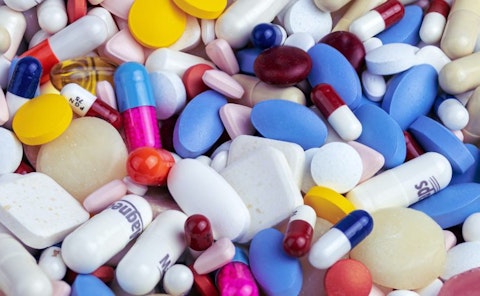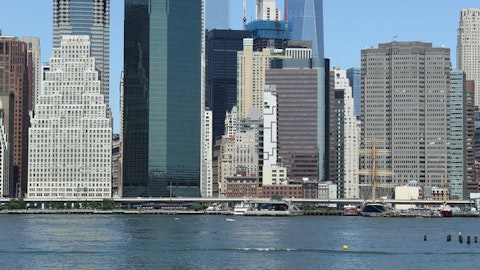In this article, we will be taking a look at the 10 most fined pharmaceutical companies in the world. To skip our detailed analysis, you can go directly to see the 5 Most Fined Pharmaceutical Companies in the World.
Pharmaceutical companies have often been derided by conspiracy theorists who coined the term “Big Pharma”. The theory goes that pharmaceutical bosses get together and operate for sinister purposes rather than operating for the public good. For example, some theories believe that pharmaceutical corporations suppress natural alternative remedies so they can sell their drugs while other theories believe that drugs against HIV/Aids are ineffective on purpose. One of the more outlandish theories is that the cure for cancer has been discovered but companies have repressed it, so they get more patients and hence, higher sales. First of all, cancer isn’t just one disease, it is “a group of diseases characterized by the uncontrollable proliferation of cell”. Most people know that there are different types of cancer, such as breast cancer, lung cancer, blood cancer and skin cancer among others, and each have a different method of treatment. This is why even if a cure is discovered, it will only eliminate a specific type of cancer. Also, can you imagine how much pharmaceutical companies would earn if they came up with a drug to cure any type of cancer?

Photo by Myriam Zilles on Unsplash
Another common argument is that pharmaceutical companies often overprice their drugs to increase revenue and profits, especially when compared to costs. One thing people should remember is that the cost of manufacturing a drug isn’t the only pertinent cost; research and development for a drug can often cost billions and this cost has to be considered when setting a price. Further, in most countries around the world, especially in developed countries, prices are controlled by the government. The U.S. is a major exception to this which is why Martin Shkreli was able to increase the price of a lifesaving drug from $13.5 to $750 a pill. Of course, there is still an argument regarding overpricing as evidenced by the recent Twitter debacle for Eli Lilly and Company (NYSE:LLY), when someone got a blue tick and pretended to be Eli Lilly and Company (NYSE:LLY), announced that the company would offer insulin for free, which tanked its stock.
In November, the CEO of Eli Lilly and Company (NYSE:LLY) made the following comment about the Twitter episode at the STAT Summit:
“It probably highlights that we have more work to do to bring down the cost of insulin for more people.”
Pharmaceutical companies should also be recognized for their swift response to the Covid-19 pandemic, as the firms responsible for developing vaccines were able to produce one in an unprecedented amount of time, which played a crucial role in containing the virus.
However, all of the above does not mean that pharmaceutical companies are not susceptible to corruption or malpractice. As is true for any major corporation, the focus, while being on patients, is also heavily on profits and revenue as they need to provide a return to their shareholders. Famous companies which have been destroyed due to corrupt practices include Enron and WorldCom. Many pharmaceutical companies have also engaged in unethical and illegal behavior at times, which has resulted in fines worth billions of dollars. These pharmaceuticals have often received criticism for their engagement in illegal activities including kickbacks and bribes, while these also include shipping contaminated or adulterated drugs, not to mention marketing drugs for uses which had not been approved.
In total, these companies were fined over $33 billion from 2003 to 2016, with the most fined pharmaceutical company in the world alone responsible for nearly $10 billion of this amount, as well as the largest single fine in history. Our data is based on a report by the Journal of the American Medical Association which carried out an assessment in the aforementioned time period. Of the 26 companies considered in the study, shockingly, only 4 companies (15%) never faced any penalties for illegal activities. Two of the companies in the list have been acquired by other companies in the past 15 years, and so we’ve added their fines to the companies which acquired them. So, without further ado, let’s take a look at the companies whose fines are higher than revenues of other corporations, starting with number 10:
10. Amgen Inc. (NASDAQ:AMGN)
Total fines incurred by the company from 2003 to 2016 (in millions): $1,172
Amgen Inc. (NASDAQ:AMGN) is one of the most fined pharmaceutical companies in the world, having faced 9 penalties since its operations commenced. In 2012, Amgen Inc. (NASDAQ:AMGN) agreed to pay $762 million to resolve False Claims Act allegations which was the single largest criminal and civil False Claims Act settlement related to a biotech company in the history of the U.S.
9. AstraZeneca PLC (NASDAQ:AZN)
Total fines incurred by the company from 2003 to 2016 (in millions): $1,172
AstraZeneca PLC (NASDAQ:AZN) is a British-Swedish pharmaceutical company, which was one of the companies involved in the development of the Covid-19 vaccine. AstraZeneca PLC (NASDAQ:AZN) has faced 10 penalties so far with the biggest one being a payment of $520 million to resolve allegations that AstraZeneca PLC (NASDAQ:AZN) illegally market the drug Seroquel.
8. Novartis AG (NYSE:NVS)
Total fines incurred by the company from 2003 to 2016 (in millions): $1,198
Novartis AG (NYSE:NVS) is a Swiss-American pharmaceutical company which was recently part of a group of companies fined more than $400 million by the French authorities. Novartis AG (NYSE:NVS) has been the subject of 11 penalties, with penalties being just 0.18% of its total revenue. This is why even though it may seem that the amount of these fines are high, often numbering in hundreds of millions of dollars of even billions, as a proportion of even their annual revenue or profits, these fines are miniscule and a risk worth taking for most companies.
7. Bristol-Myers Squibb Company (NYSE:BMY)
Total fines incurred by the company from 2003 to 2016 (in millions): $1,389
Bristol-Myers Squibb Company (NYSE:BMY) recorded revenues of $46 billion in 2021 alone. Bristol-Myers Squibb Company (NYSE:BMY) is currently one of the defendants of a $1 billion lawsuit from Guatemala for its role in a 1940s U.S. experiment which led to infecting hundreds of Guatemalans with syphilis. Bristol Myers Squibb paid more than $515 million in order to resolve allegations of illegal marketing and pricing of drugs.
6. Eli Lilly and Company (NYSE:LLY)
Total fines incurred by the company from 2003 to 2016 (in millions): $1,775
Eli Lilly and Company (NYSE:LLY) is an American pharmaceutical company which has offices in around 18 countries. Among the many controversies Eli Lilly and Company (NYSE:LLY) faced is the illegal marketing of Zyprexa, for which a penalty of $1.415 billion was imposed of which $515 million was a fine. Similarly, Eli Lilly and Company (NYSE:LLY) was accused of illegal marketing of Evista and paid $36 million in fines.
Click to continue reading the 5 most fined pharmaceutical companies in the world.
Suggested articles:
- 15 Biggest Nanotechnology Companies in the World
- 15 Most Creative Companies in the World
- 16 Biggest Mining Companies in the World
Disclosure: None. 10 most fined pharmaceutical companies in the world is originally published at Insider Monkey.
This article was corrected at 18:28 PM ET on January 10, 2023, to remove a statement that was mistakenly attributed to Eli Lilly’s CEO.





